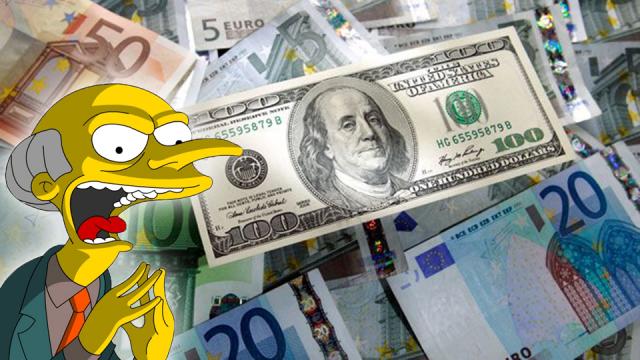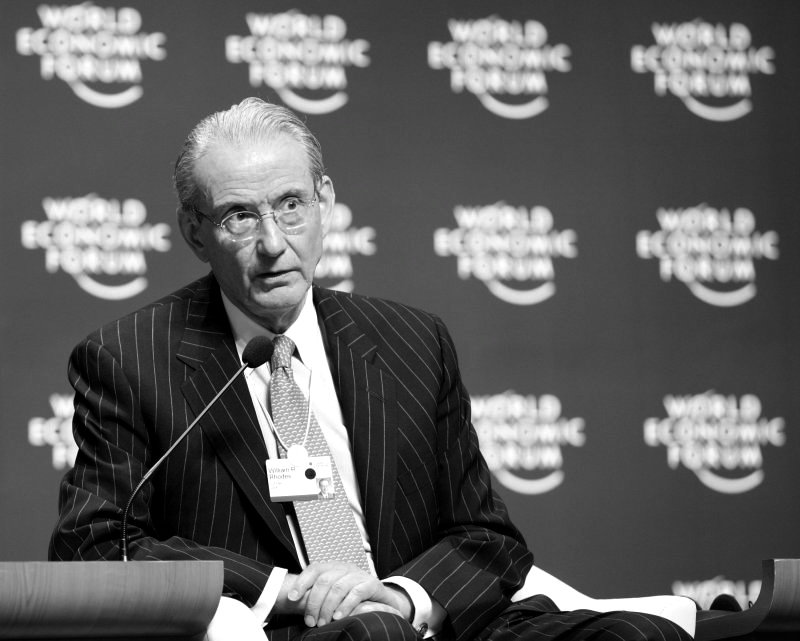
In the second quarter of 2013, the third-largest U.S. bank by assets, Citigroup, posted a 42% increase in profits which CEO Michael Corbat praised as a “well balanced” result of “cost cutting” programs, including the firing of 11,000 workers.
This big bank has a sordid history of predatory profiteering and criminal activity, not unlike all the other large banks. In the early 20th century, what was then National City Bank was the main bank for the Rockefeller Standard Oil interests. Over ensuing decades and mergers it eventually came to be Citibank, and in the late 1990s, Citigroup. At that time, the bank was dealing with accusations that it had aided in the laundering of roughly $100 million in payoffs by Mexican drug cartels.
In 2000, the mega-bank was accused of abusing borrowers and clients through predatory lending practices. The bank aroused further controversy by helping Enron evade financial rules which allowed the company to hide its real financial reporting from government regulators. In 2005, Citigroup paid a $2 billion settlement to Enron investors who had filed a class-action lawsuit against the bank for helping Enron hide billions of dollars in debt.
A 2005 report by Citigroup created the term ‘plutonomy’ to describe the modern state capitalist system in which there is only the rich “and everyone else”; an economy in which the rich increasingly become the consuming class, driven to a significant degree by “disruptive technology-driven productivity gains, creative financial innovation, [and] capitalist friendly cooperative governments.”
Referencing the United States, the U.K., Australia and Canada as modern plutonomies, Citigroup global strategist Ajay Kapur noted, “The Plutonomy is here, is going to get stronger, its membership is swelling,” and while the "risks" of plutonomies include “war, inflation, financial crises, the end of the technological revolution and populist political pressure,” Kapur noted that “the rich are likely to keep getting even richer, and enjoy an even greater share of the wealth pie over the coming years." Indeed, Citigroup would ensure that this was the case.
In the 1990s, Bill Clinton’s Treasury Secretary Robert Rubin helped to deregulate Wall Street and allow for massive mergers and the proliferation of dangerous financial instruments in the derivatives market, which helped create the future housing crisis. After leaving the White House, Rubin became an adviser to Citigroup, and ultimately the bank’s chairman, where he helped push the mega-bank further down the path taken by Morgan Stanley and Goldman Sachs to build up an unprecedented housing bubble. When the inevitable happened, Citigroup owned tens of billions of dollars in bad debts. Meanwhile, Robert Rubin was appointed as an economic adviser to the transition team for President Obama.
Citigroup was subsequently bailed out by the federal government, that is, the U.S. taxpayer, and became the largest single recipient of bailout funds totaling some $476.2 billion in cash and guarantees. Citigroup was essentially put into receivership by the government, which decided to reward the bank after its highly effective and efficient participation in the destruction of the economy. The U.S. Treasury eventually sold the last of its shares in Citigroup in 2010.
Since that time, the bank has been quietly settling civil complaints and lawsuits, further proving that criminal activity by major financial institutions comes down to a cost-benefit analysis: if the cost of committing massive crimes is less than the benefit of engaging in such criminal activity, there is little incentive to obey the law rather than pay comparably lower fines after breaking it.
Between 2003 and 2011, the Securities and Exchange Commission (SEC) accused Citigroup of securities fraud five separate times, with the bank agreeing to pay settlements in each case, amounting to a slap on the wrist from the SEC. As a Bloomberg report stated bluntly, for Citigroup “obeying the law is too damn hard." Or rather, simply, it is unnecessary.
In 2011, Citigroup paid a $285 million settlement with the SEC for defrauding investors. In 2012, the bank paid another settlement of $590 million for defrauding investors, though it made sure not to admit guilt as the payment was “solely to [eliminate the uncertainties](http://online.wsj.com/article/SB1000087239639044491490457761941032552814..., burden and expense of further protracted litigation.” In 2013, Citigroup agreed to pay a further $968 million to Fannie Mae over the bad mortgage loans](http://www.theglobeandmail.com/report-on-business/citigroup-to-pay-968-m...) it sold to the company in the run-up to the financial crisis.
But before you assume that Citigroup simply defrauded investors and other institutions, know this: the bank also undertook foreclosures on hundreds of U.S. military members during the financial crisis, often while the military personnel were in Iraq or Afghanistan. After illegally foreclosing on military personnel while they were overseas fighting wars for the America's imperialists and profiteers, Citigroup made a later appearance in Iraq, announcing in 2013 that it would be the first U.S. bank to open a branch in Bagdad “as major international oil groups as well as industrial and construction companies are looking to invest in Iraq."
Iraq is just the latest hub of overseas criminal financial activities for Citigroup, which has meanwhile been struggling to “comply” with anti-money laundering laws after also participating in the largest financial scam in history: the Libor rate-rigging scandal. At the same time, the bank has been dooming the European Union’s crisis countries (namely Greece) to a faster decline, issuing self-fulfilling reports that suggest the region is headed for further crisis, thus reducing investor confidence and pushing the crisis-hit economies into even deeper crisis.
In sum, Citigroup's fraudulent lifestyle – with its increased quarterly profits – is one more example of how the institutions of the financial system function as criminal conglomerates on a scale far surpassing any Mafia on record. And of course, for such criminal activity to go unpunished, the institution cannot exist in isolation. In fact, like all other big banks, Citigroup is heavily integrated in the national – and increasingly international – structure of elite institutions, with cross-membership between major corporations, think tanks, governmental positions, media and educational institutions.
Thirty-seven individuals on the executive committee and board of directors of Citigroup were examined for the Global Power Project. The most represented institution was the Council on Foreign Relations, with six individual affiliations, followed by Morgan Stanley, Banco Nacional de Mexico (Banamex), American Express, the Foreign Policy Association, IBM, the Brookings Institution, the Metropolitan Museum of Art, Yale University, and Stanford University, among many others.
Meet the Elites
On the board of directors of Citigroup is Franz B. Humer, the chairman of Roche Holding, a major pharmaceutical conglomerate. Humer also sits on the International Advisory Council of JPMorgan Chase, and is chairman of INSEAD, chairman of Diageo Plc, a member of the international advisory board of Allianz SE, a member of the board of Jacobs Holdings, and a member of the European Round Table of Industrialists (which advises EU leaders on promoting policies beneficial to large corporate and financial interests). Humer also serves, comfortingly, as chairman of the International Centre for Missing and Exploited Children.
Judith Rodin, the president of the Rockefeller Foundation, is on the board of Citigroup. Rodin also served as the President of the University of Pennsylvania from 1994-2004, after which she remained as President Emerita. A former Provost of Yale University, Rodin also serves as a director of Comcast Corporation, AMR Corporation, the World Trade Memorial Foundation and Carnegie Hall. She is a member of the Council on Foreign Relations and a former honorary director of the Brookings Institution. Additionally, Rodin is a member of the board of the Alliance for a Green Revolution in Africa (AGRA) – a joint venture between the Rockefeller Foundation and the Bill & Melinda Gates Foundation to promote the advancement of GMOs in Africa – and she served as a member of the High Level Panel of the African Development Bank. Rodin currently serves as a member of the international advisory council of the Mary Robinson Foundation, a member of the American Academy of Arts and Sciences, the American Philosophical Society, and the Institute of Medicine of the National Academy of Sciences. She is also a participant in the World Economic Forum, the Global Humanitarian Forum, the Clinton Global Initiative’s "poverty alleviation track," and she is a board member of Obama’s White House Council for Community Solutions.
Another member of the Citigroup board is Ernesto Zedillo, the former President of Mexico from 1994 to 2000, who was pivotal in implementing the North American Free Trade Agreement (NAFTA), much to the benefit of big banks and corporations, and to the detriment of poor and working people. Zedillo had previously served a number of positions in the Mexican government, including deputy director of the Bank of Mexico. Currently, Zedillo is the director of the Center for the Study of Globalization and an International Economics and Politics professor at Yale University. He is a member of the Group of Thirty, on the board of directors of Alcoa and Procter & Gamble, and on the international advisory boards of both BP, Rolls-Royce and ACE Ltd.. He is additionally an adviser to the Credit Suisse Research Institute, a member of the Foundation Board of the World Economic Forum, a former member of the Trilateral Commission, the former chairman of the Global Development Network, a former chair of the High Level Commission on Modernization of the World Bank Group Governance, a former member of the international advisory board of the Council on Foreign Relations and the Coca-Cola Company, a former member of the Global Development Program Advisory Panel of the Bill & Melinda Gates Foundation, and he is currently a member of the board of the Peterson Institute for International Economics.
William R. Rhodes, another Citigroup board member, serves as a senior advise to Citi and is president and CEO of William R. Rhodes Global Advisors. A director of the Private Export Funding Corporation, Rhodes is a senior adviser to the World Economic Forum, the global management firm Oliver Wyman, vice chairman of the National Committee on U.S.-China Relations, a director of the Korea Society and the U.S.-China Business Council, a member of Korean President Lee’s Council of Global Advisors, a member of the international advisory board of the National Bank of Kuwait, a senior adviser to the Dalian Government in China, a member of the private sector advisory board of the Inter-American Development Bank, a member of the international policy committee of the U.S. Chamber of Commerce, a member of the board of the Foreign Policy Association, and a trustee of the Asia Society and the Economic Club of New York. Rhodes is also a member of the Council on Foreign Relations, the Group of Thirty, the Lincoln Center Consolidated Corporate Fund Leadership Committee, the Metropolitan Museum of Art Business Committee, and he sits on the advisory council of the Brazilian American Chamber of Commerce. He is a former vice chairman of the Institute of International Finance, a chairman emeritus of the Americas Society and the Council of the Americas, a director of the U.S.-Russia Business Council and the U.S.-Hong Kong Business Council, a chairman of the U.S.-Korea Business Council, a trustee and member of the board of governors of the New York Presbyterian Hospital, a chairman of the board of trustees of the Northfield Mount Hermon School, and a member of the board of overseers of the Watson Institute for International Studies at Brown University.
Like all the big banks, Citigroup is heavily integrated with other dominant institutions in American and international society, which helps explain why the bank can break so many laws and get away with it. It’s not simply financial weight that makes this bank “too big to fail” and “too big to jail.” It's the institutional affiliations that also help make it that way.
Andrew Gavin Marshall is a 26-year old researcher and writer based in Montreal, Canada. He is Project Manager of The People’s Book Project, chair of the Geopolitics Division of The Hampton Institute, research director for Occupy.com‘s Global Power Project, and hosts a weekly podcast show with BoilingFrogsPost.
3 WAYS TO SHOW YOUR SUPPORT
- Log in to post comments

















